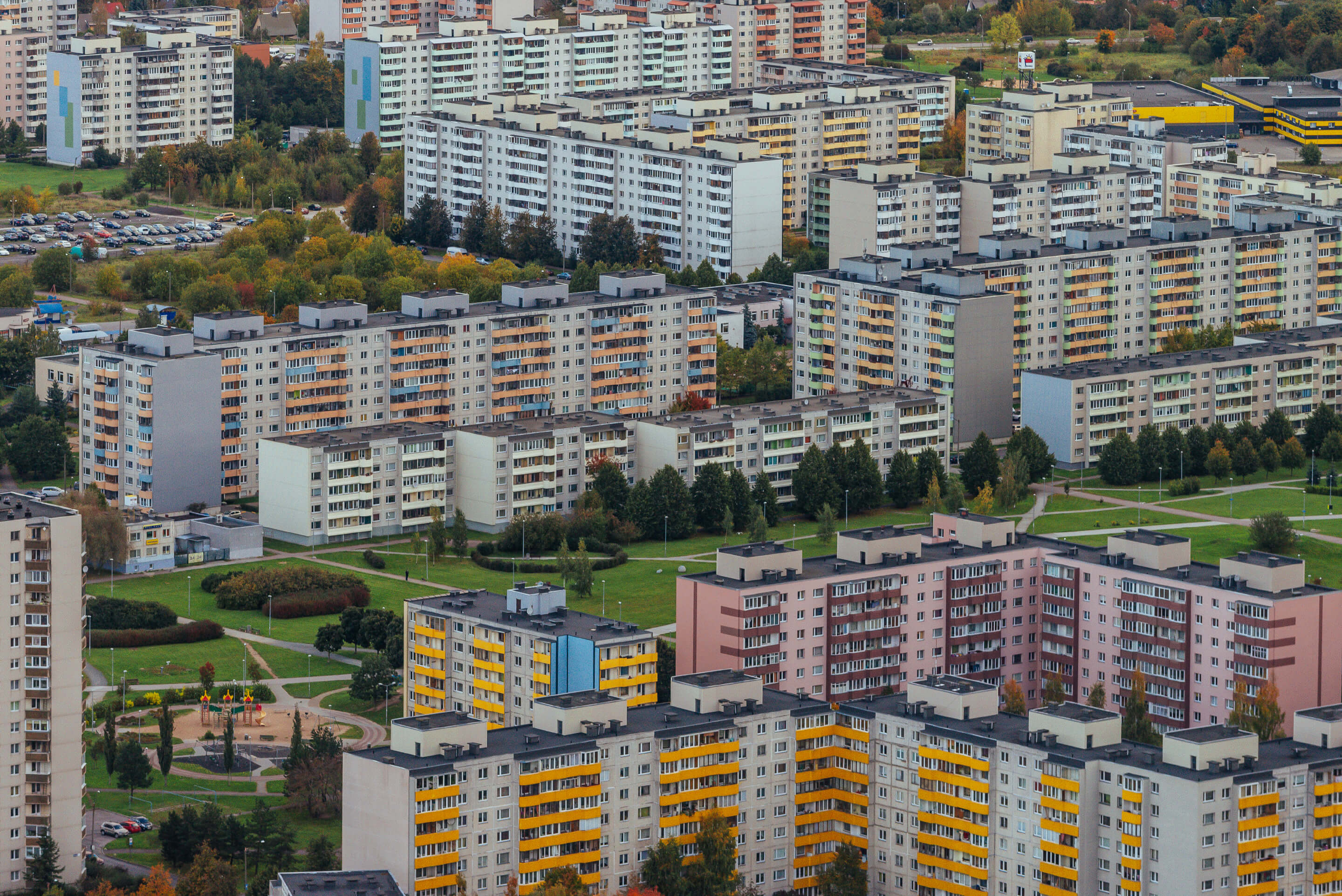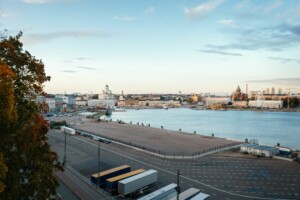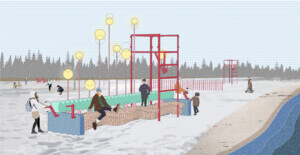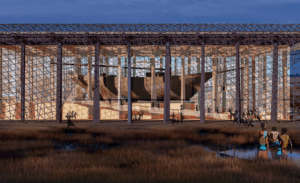Picture a district of communist housing blocks near the Baltic coast. Imagine how those buildings could be updated to function not just as stacks of housing units, but as a system that converts waste to planting soils, grows food for residents, produces off-grid energy, and automatically allocates reserves to where they’re needed most. Now, envision this urban organism as not just a resource amplifier, but as a pleasant place to live, imbued with novel aesthetic qualities that relate to the infrastructural elements.
This, in a nutshell, is the outline of the CIRCULAR BLOCK competition, part of the 2022 Tallinn Architecture Biennial, which is themed Edible, Or the Architecture of Metabolism. The competition was organized by biennial curators Lydia Kallipoliti and Areti Markopoulou with local co-curator Ivan Sergeyev and assistant curator Sonia Sobrino Ralston.

Per the brief, CIRCULAR BLOCK invites architects and students of architecture to “define new productive and cohesive urban models that question the traditional linear and discrete consumption and production systems in cities.” Buildings are responsible for about half of Estonia’s energy consumption, and a quarter of its carbon footprint—figures that track closely with other geographies’ built environments. Reducing this energy intensity is thus vital to combating the climate crisis. CIRCULAR BLOCK asks entrants to take on this challenge by creatively reimagining how an existing building stock might be retrofit with recirculatory systems—microbial fuel units, anaerobic digesters, bacteria tanks, green cultivations, algae units, and other mitigatory measures—in such a way that the added infrastructure meshes with habitable space.
The competition focuses on Tallinn’s Lasnamäe Mikrorayon area, or residential district, which accommodates about a quarter of the city’s population in large, prefabricated panel housing blocks. The district was constructed from 1973 to 1990 during the Soviet occupation of Estonia and remains unfinished. Proposals may focus on one or any of the following topics: food, energy, waste, matter. They may operate on one of three different scales: housing block, urban block, or mikrorayon. Entrants are asked to develop ideological as well as materialist positions to questions of recycling and carry this position through their proposals.
The competition is site-specific, but proposals may be designed in systematic, scalable ways appropriate to other locations as well. The collected proposals will be assembled into a book, THE CIRCULAR BLOCK ATLAS, and presented to the City of Tallin as part of the 2022 biennial. A jury will also select three prize-winning entries (4,000 euros, approximately $4,500, for first place, 2,000 euros ($2,200) for second place, and 1,000 euros ($1,100) for third place) and five honorable mentions. Proposals will be evaluated based on the originality of the concept, how the ideas are supported by research, and the legibility of the submission. Winning projects will be displayed in the main exhibition of the biennial. The jury is composed of Winy Maas, cofounder of Dutch practice MVRDV; Kaidi Põldoja, an urban designer with the City of Tallinn; Italian architect Benedetta Tagliabue of Miralles Tagliabue; educator Toomis Tammis of the Faculty of Architecture of the Estonian Academy of the Arts, and Veronika Valk-Siska, an architect and advisor to the Ministry of Culture of Estonia.
There is no fee for entry, which is a nice touch, and all submissions are due by February 28, 2022. For more details on the competition and submit see here: https://2022.tab.ee/vision-competition/.











